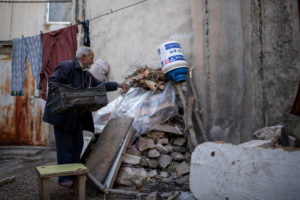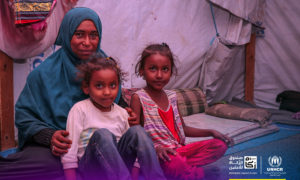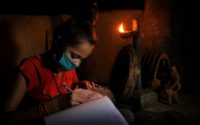“More Than 1 Million Zakat Beneficiaries Through The Refugee Zakat Fund”, UNHCR Reveals, Urging Continued Zakat Contributions Amid COVID-19 Emergency
The United Nations High Commissioner for Refugees (UNHCR) launched today its annual Islamic philanthropy report, highlighting the impact of the Refugee Zakat Fund on the most vulnerable refugees and internally displaced persons (IDPs) across the globe, managing to assist more than 1 million beneficiaries in 2019 with Zakat funds.
In 2019, UNHCR’s Refugee Zakat Fund provided lifesaving cash and in-kind assistance to a total of 1,025,014 individuals (191,497 families), allowing them to address urgent needs, including shelter, food, education, healthcare and debt repayments. This was possible through $43.165 million received from individuals, institutional partners and philanthropists, primarily from the Middle East and North Africa region.
Days before introducing its global Ramadan campaign #EveryGiftCounts, UNHCR urges continued Zakat and Sadaqah contributions to help millions of refugees and internally displaced families far from their homes, faced with poverty, hardship and uncertainty.
With many people staying home during the COVID-19 outbreak, online donations through the Refugee Zakat Fund’s digital platform zakat.unhcr.org have the potential to be even more vital.
In 2019, 99% of the Fund’s contributions came from generous donors in the MENA region, notably from the GCC. With the remaining donations coming from United States of America, Canada, and the United Kingdom.
“I want to take this opportunity to thank all individuals, foundations, financial institutions and faith-based organizations who have entrusted UNHCR with their Zakat. We are very humbled by your generosity and proud to reiterate that 100% of your Zakat has been delivered to extremely vulnerable families living below national poverty lines,” said Khaled Khalifa, Senior Advisor and Representative to the Gulf Cooperation Council Countries.
Today, and in view of the current COVID-19 crisis, more refugees will require our humanitarian assistance” “Over 80% of the world’s refugee population is hosted in low to middle-income countries, many of which have weaker health, water and sanitation systems. In the countries where UNHCR operates, the COVID-19 pandemic is an ’emergency on top of an emergency'” Khalifa added.
On March 25, UNHCR appealed for US$255 million for its urgent push to curb the risk and lessen the impact of COVID-19 outbreaks in vulnerable communities. Zakat and Sadaqah contributions this Ramadan will help prevent more refugees from slipping deeper into poverty. Cash assistance is particularly quick and efficient in empowering families to make the best decisions on how to care for themselves. Cash will be useful in making necessary purchases such as rent, food or other immediate needs in case of lockdown, mitigating some of the negative socio-economic impacts of COVID-19 on families and communities, many of which have lost their informal daily-wage livelihoods.








